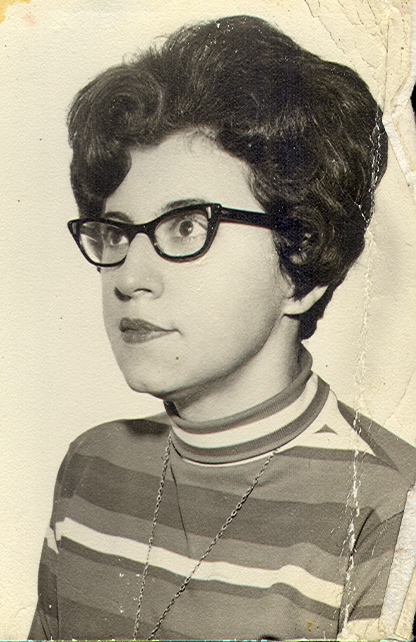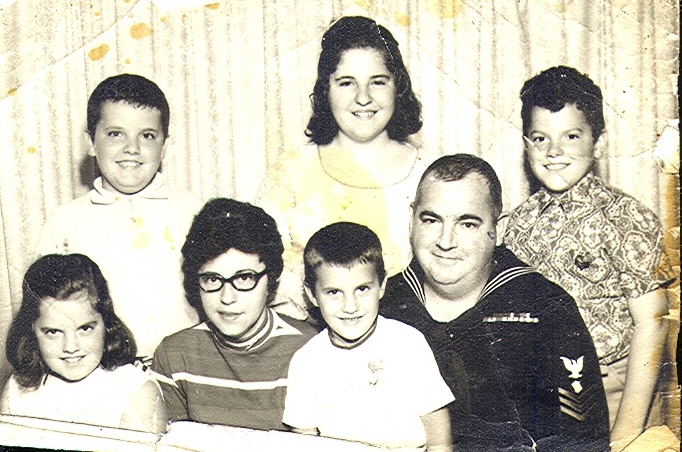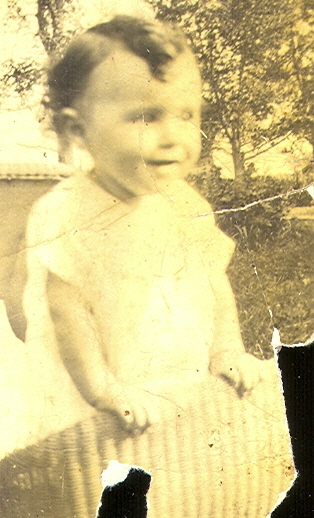Lumina M. Miles (nee Yancey)


|
|
Lumina Marguerite Yancey was born on June 22 in 1931 and raised in
Norton, Vermont. Her parents were
Earl and Irene Yancey. Lumina did not spent her entire live in Vermont, she lived al over the
United States. New Hampshire, Massachusetts, Virginia, North Carolina, California, and is know
living with her daughter in San Antonio Texas. She went to school all the way and completed
twelve years at the
Lyndon Institute (map). She has worked as an office manager, a clerk, and a cashier. On August
the 16th in 1952 she got married to Navy man
Raymond L. Miles in Groveton, New Hampshire.
A major burden for her to carry was when her husband was sent to Vietnam during war time. They
had five children together. They were married for 20 years, it ended when her husband died. She
has seventeen grandchildren and five great-grandchildren. I know Mrs. Yancey through my fiancée
who is friends with her daughter.
Did your live changed in any ways from being a civilian to a navy wife?
What did you think of the military before you got married to a navy man?
Well, we were a military family I mean you know I was used to uniforms because they were
just there and my step brother was a fighter pilot in the pacific. You know we were involved in their,
or we he was and we backed him up. And I had a lot of cousins that were in the military you know so I always
lived with uniforms son.
Oh yes it's - there's responsibilities that you don't have as a civilian wife. Things that you know - there
just things that you have to face when you're military that you don't have to face as bringing your children up by
yourself a lot of the time, being alone and you know things like that, and moving every couple of years. And you know
when they go aboard a ship, depending at what kind it is, they're gone, you know. And he was with the Marines most of
the time, so he wasn't home very much.
When you got married there was still the Korean War going on,
did that effect in any way your young marriage?
No the Korean War didn't affect us because , he went to- I think -the North Atlantic with some Marines, and
they went to Africa and they were bringing people out of Africa that I don't know there was some kind of uprising and
I don't know what and he was supposed gone six weeks and he get back for six month, (laughed) that's quite a cap there,
between, and you just learned to roll with the punches.
When the Topic about Vietnam came up did you know anything about this country, was there anything like did you and your
husband know anything about what's going there and the people over there?
Well, he went over towards the end of the
Vietnam War. We listened to TV and the News and
I knew that France had given up the ah you know Vietnam, and of course than the Americans had to you know think they were
god and went in. And it was a useless thing you know it is the heartache on both sides that came from it, wasn't very nice.
And most of the people that men that I met through my husband were not the same people that went over, they came back and
they were especially if they had been in country. And running around on this little riverboat
you know, and having the Vietcong shooting at you. My husband said one night he wanted to smoke so he set on out on the
deck and next thing I heard "I can hear this 'Ping Ping' and I was, what is this? They were shooting at me and I said it was
time for me to get inside.
So how did the life change for you and your children?
We went back to New England where he had grown up in, and where I had lived most of
my life. And it was hard it was lonely it was hard for the children. My youngest son decided one day, that I had , he just
looked at me and said: "Momma you made him put his uniform on and put him on a bus and he hasn't come back, so now I know he
is dead. And I said, you know and I thought, maybe some of the child had said well if he's in Vietnam he's you know, he could. And I said
Bobby who said that. He says: "No but he isn't coming back." And that hurt more than, you know anything could have happened
because. The children loved him they were you know, but he was gone three years out of their lives.
So could stay in any contact with your husband, while he was over there?
You know we both wrote you know every day, but it would you know you'd gor for six weeks and wouldn't get
a letter and
then you get you know a whole bundle. And ah mail was very you know uncertain maybe you get it maybe you wouldn't, and
anything there was I didn't like, they censored the mail going back and forth, but I don't know what they thought
I would know that would affect, because I didn't, so you know its just its a long time.

How old were the kids when your husband left?
Bobby was about 4. Gabby- well it's Irene but we call her Gabby -was I would say 6 or 7. And Peter was a year and
a half older, so he was about 9. And Butch was about 10, there wasn't much room between 'em. And Babe I think was 13 or 14.
Did People treat you different while your husband was gone?
Yes you know here is this woman in her 30's with her family all by herself and people you know surprisingly
people resent you and you know I don't [know] what they think you gonna do, but you know i come to feel they, I wasn't
interested in ah husbands or friends or anything else you know just you got five kids to take care of, you
got your hands full.
Did your view about the military changed while your husband was gone?
In some ways I was disgusted, I just wanted him home. I felt that we lost to many years of our life's and ah Babe
got really sick with her kidneys she had really bad kidneys and nobody knew what, the doctors had, I took her to didn't
know what to do. They said take her to the navy and maybe they can found out. I took her to [Dr.] Balbowa and they didn't
know. So it was rather ah hard plus his father died while he was over there and it was just a mess. It was to me very
stressful.
What did you think about the anti war protesters?
Disgusted, they were you know unfortunately, but people who don't serve in the military they can stand on there
soap boxes and say this shouldn't be happening, well true, but when you're wearing Uncle Sam's uniform I don't care which
brand. They tell you to go somewhere you go and you leave your family behind: especially if you're going to a war zone and
you don't argue with them. I wasn't very happy when he came home with his orders, telling me , he handed me the orders and
he said: "there shipping me to Vietnam." And I looked at him, he was 35 years old and I said he was to old. You know he
wasn't any kid that could go out there and think oh- Bang- Bang this is fun. And I picked up the order between us, and I
read what it said he would be doing it said counter intelligence counter insurgents. Well you know that kinda means your
making both ends against the middle and even his commanding officer didn't know what. Did, they would tell the commanding
officer on his ship were to drop him off, and they didn't know what he did, and they told him if your ever captured, We
don't know who you are. So that doesn't make you feel very good either.
You told me before there was an incident were the ship sunk and
They reported on national news that the "Winston" had gone down with all its crew, but fortunately I didn't have the
stupid TV on and everybody in that little town where I lived knew, but me. And it hadn't it was some stupid mix up, I don't
know whether another ship had gone down or what, but you know there was nothing wrong with his ship, it was sitting out the
coast of Vietnam. But other than that, I think one of the happier times, was he one Easter sent me an orchid and I thought
well - I Love orchids- so I thought that was pretty special.
Did your husband's behavior change in some way after he came back?
Yes, yes. You don't send someone over in those kinda places and think you're going to get back what you sent, because
you don't. To live with facing death every day honey. You don't you know you don't come home the same. He was I think in a
lot of ways bitter, he was fed up with the military, he didn't like what he had done over there. And oh he has metals he
would never except for being over there. He says "I'm not taking my damn metals because I was there killing people." So you
can see how he sees that. And you know he was [a] big man honey, I mean he was 6 foot tall, probably weight 220 back then,
but he said the only thing that kept him
(little break) they put them thorugh some kinda training, survival training, where if they got caught they would put them
in the some kind of you know circumstances that they would face in a prison or war camp. And he said the only thing saved
him was when we put him in this little box little tent you know. The Vietnamese were quiet capable that umm he said was his
size. He said they couldn't cram him in it you know and so, but he got the effect of what it would do, you know still would
do.
How was your husband treated by the people over here when he came back?
In the little town where he grew up and I had stayed while he was gone, no one really
looked down on him because he had spent his life in the military and the only thing I (little pause) they
had a per little town in Northern New England, I don't know where they came from but there were big and these were people who
lived there all their lives communist party and there were oh maybe three or four families of the military and the husbands were
overseas you know in Vietnam and so they were gonna demonstrate against us and I had a cousin that went and fought during
over in World War II over in the Pacific. And he says I'm gonna tell you something- he said they may try it and demonstrate,
but he says when we go out and demonstrate they'll be leaving town, so I mean it wasn't really bad. And then I had relatives
in this little Vermont town where I had grown up, and I'd go see them and then I had a really good friend that I'd graduated
high school with, and I would take off and go on you know and visit her on weekends with the kids. And I'd tried to keep
[myself] busy but you know sometimes its kinda hard to fill in 24 hours a day. And I felt like an idiot because people would
say to me, I don't know how you do it, you're constantly smiling. I said maybe you think I can take it, but I can't. I says I
have moments when I'm alone you're not with me then. I say I let myself go and I say I cry too. I said and I got, they had
some kinda of influenza or some kinda flu that and I got it. Oh God I thought I was gonna die and I think the Dr. did to and
you know it was things like that bothered me hon. Not having that support system.
Yea, and you know he came home and we went. He packed us up and we came out to California. I thought he, was gonna be at
home, but nope he wasn't he was shipped out on, he went on a two different Marine Core boats. They were helicopter boats.
So (little break) you know and then he came home and got out of the Navy. And that was all she wrote.
But I think a lot of it made him bitter and I think it didn't stop with the war or anything he just carried out his
heartache. Cause I had never seen him crying like that and he sat there and telling me about some of the marines he had
lost, and he said they weren't much older than our son. And says our son is all I could think of, he said of either Butch or
Peter being you know killed and he brought me home some beautiful things from Vietnam (laughing) and from Hong Kong and when
he came back from Hong Kong. Oh he brought me some beautiful kimonos and you know just, of course I was tiny then
(laughing) And I could wear. But now I don't think I could get into them now. But that's about it Hon and then we went out,
came out to California, and just a few years later he was dying. I think a lot of it I think if you could trace back I think
a lot of it would be traced back to that because he got very, very bitter . And that's about it hun.
Norton, Vermontit is a commercial web-page of the Virtual Vermont Internet Magazine that gives tourists
and future residents information about the individual cities and towns in Vermont. Copyright © 1999-2005. Last
Update: Nov. 5, 2005
Lyndon Institute This page is a Information page of Great Schools. net. It Gives information about Schools
in Vermont and is produced by Great Schools Inc.This page gives information about schools in the entire U.S.A,
information such as student teacher rates in classrooms. Copyright © 1998-2005 Great Schools Inc. All Rights Reserved.
(map) This page is a commercial Map web-page. It is
produced by Map Quest Inc. This Web service Can be used to find different locations, by entering the address the
program shows the target address and can even calculate the shortest route. Copyright © 2005 Map Quest, Inc. All Rights
Reserved.
Korean War is a page of the Online Encyclopedia. "Wikipedia
is a free-content encyclopedia, written collaboratively by people from all around the world. The site is a wiki, which
means that anyone can edit entries simply by clicking on the edit this page link. Wikipedia is a trademark of the non-profit
Wikimedia Foundation, Inc." Last Update Dec. 1, 2005
Vietnam War is a page of the Online Encyclopedia. "Wikipedia
is a free-content encyclopedia, written collaboratively by people from all around the world. The site is a wiki, which
means that anyone can edit entries simply by clicking on the edit this page link. Wikipedia is a trademark of the non-profit
Wikimedia Foundation, Inc." Last Update Dec. 1, 2005
a letter This is a nonprofit web-page actually made for
children by the National Park Service of the Gettysburg National Military Park. The page gives information about how
soldiers in the Civil War communicated with their loved ones at home. It also shows the history of the soldiers mail
opportunities from the civil war all the way to the Gulf War.
I'm glad that I took this class, not just because I learned a lot in my own interview, no I also learned a lot from the other
presentations.
For me growing up in a German society where the population is not really supportive when it comes to the Military, I never was in
contact with someone who experienced war. Although my grandpa grew up during the second World War, I never got in contact
with war. I always looked at war from the political aspects, and from those aspects I always thought, if people join the
Military you don't have to wonder when war hits you.
Talking to Mrs. Yancey was the first time in my life I talked one on one which someone who had a close family member sent
away to go to war. For me it always was you choose the military live with the consequences. I never thought about the
families that stay back and might suffer more than some of the soldiers in the field. I learned that there are military
people who do not always agree with what they have to do, but because they made a commitment to the military they have to
stay to it. Over all I think this is a great way to learn about history, because it is not some dry political nonsense no
one really understands, it is history from the people who lived it. They always say that the children are the future, but
the children are educated by the once that lived the past.